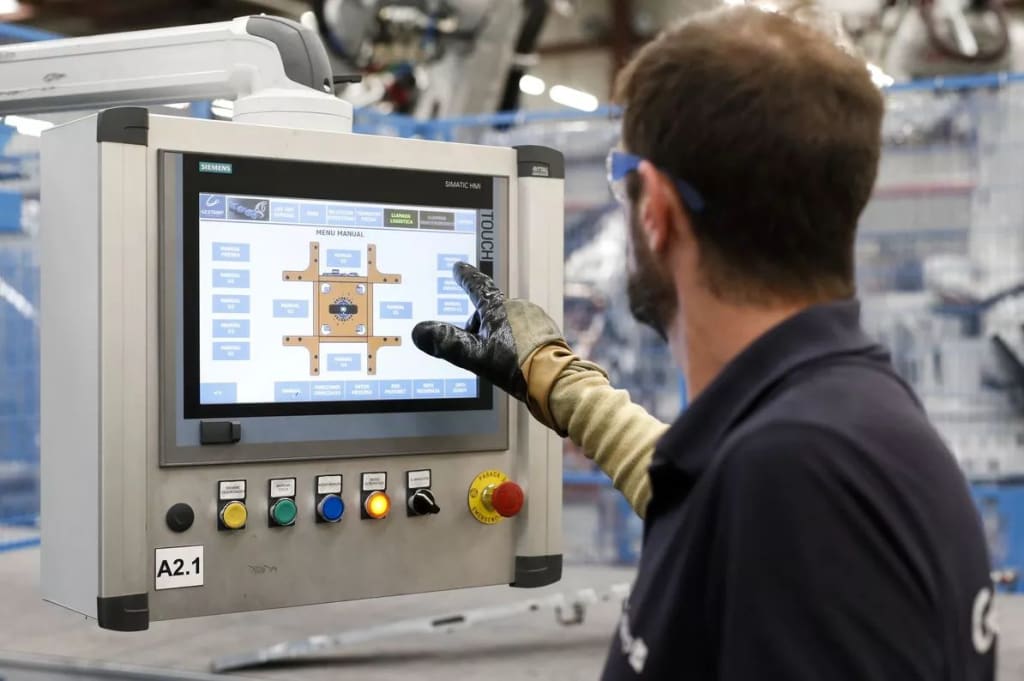Study says 85% of jobs in 2030 don't exist today
Lift your hand again if you know that’s complete nonsense.

According to a report by Dell and the “Institute for the Future”, a Californian think tank, the switch to cognitive digital intelligence will profoundly change our notion of work. If the study seems very optimistic, it is not without inconsistencies and sweet illusions about the economy of the future.
Is the future of the economy written in advance? Twenty digital experts (academics and professionals), invited by Dell and the Palo Alto-based “Institute for the Future”, met during workshops in March 2017, to anticipate the many changes to be expected for the business and work world. And the result seems spectacular: according to the study published following their analyzes, 85% of jobs in 2030 do not even exist today. At issue: the progressive out-datedness of entire business groups, doubled by digital technology and robotization, which will be more efficient than man, even for many intellectual tasks. According to the participating experts, we are indeed entering the second phase of digital development. After the first step, which is the simple imitation of logical thinking, the next few years will see the advent of a true cognitive intelligence, able to imagine solutions, to interpret data, even imperfect, as humans do. currently. The third phase, according to the study, will simply be the appearance of the "virtual human being", for after 2030 nevertheless.
Tomorrow, robots as financial advisers?
What is therefore at stake, for man, is to refocus on what he can (still) do better than the machine. The study makes an important observation on this point: “the ability to acquire new knowledge will be worth more than knowledge already learned”. We will no longer perfect our art in a trade, but we will improve our ability to be quickly satisfactory in new trades. And therefore, to be more nomadic in his career and more available for the various changes in the economy. According to the American Labor Office, today's students will have gone through 8 to 10 jobs when they turn 38, and the Dell study adds that a number of people will be “freelance”, without a fixed position , accumulating different missions to multiple employers.
And the transition should go quickly, because digitization is already improving productivity and labor costs for the company. The first jobs concerned are obviously manual trades. According to a 2015 Guardian study, when an offshoring saves up to 65% on the cost of labor, robotization can reduce this cost by 90%.
When a relocation saves up to 65% on the cost of labor, robotization can reduce it by 90%.
The transition, a big challenge for the coming years
And it is this “creative destruction” that, according to the report, poses a major challenge: that of the transition to this advanced digital economy. Too abrupt destruction of old jobs threatens the economic stability of many households and therefore social peace. The document cites a Dell poll of 4,000 senior decision-makers around the world: it says nearly half of them don't know what their industry will look like three years from now. As a result of this uncertainty, 45% of them fear that they will be “obsolete” within three to five years. If these decision-makers feel threatened, what then for a simple tertiary employee, whose responsibilities are less strong and involve less analysis?
To remain positive, but without really convincing, the report is enthusiastic about the fact that the nomadization of work will make it possible to unlock new opportunities. Individuals will be able to work for multiple organizations at the same time, across borders and time differences. On this point, the study does not hesitate to make observations in the form of a promise, or even a daydream: digital work could seek its talents even in the most isolated regions, such as sub-Saharan Africa, (which must grow by one billion people by 2030), solving the problem of economic displacement in one fell swoop. Digital technology will also reduce inequalities: you will be able to work without physical contact, and therefore without revealing your gender or race, which will prevent refusals to hire based on these criteria.
In the light of this recent Visa Debit Card issue I got an option for all i.e. Milestone Gold MasterCard. MilestoneApply.com is designed and builds on your own credit history. It's the one quickest, pre-qualified and easy to access when you need credit. Milestone MasterCard can be used anywhere online for payments.
Inconsistencies and sweet illusions
It will be understood that the study is more of a manifesto than a rigorous and scientific analysis. Above all, with a total lack of response to the uncertainties of the digital economy: what about conflicts between organizations? Of the effective holding of power in the company, if all the employees are just passing through? And finally, what answers to the ubiquitous concerns about respect for privacy? Or the exacerbation of inequalities under the digital reign? The question of the continuity of organizations and of decision-making by humans is however addressed, but swept aside in a few lines: to ensure continuity, says the study, some jobs will be fixed and long-term within the same organization. We remain perplexed by the solution, which seems to have come out of the hat. In this, the study illustrates the disconnection between the actors of the digital world, talented and precise but very often subjective in their imagination of the future, and the reality of the feeling of the public, legitimately worried about its future.
About the Creator
Jane Smith
I've been a frequent flier for as long as she can remember, from studying abroad in Paris to moving to Shanghai after graduating college






Comments (2)
❤️❤️❤️🧡🤞🏾
hey visit my profile once please and guide me what and how should i do to get better